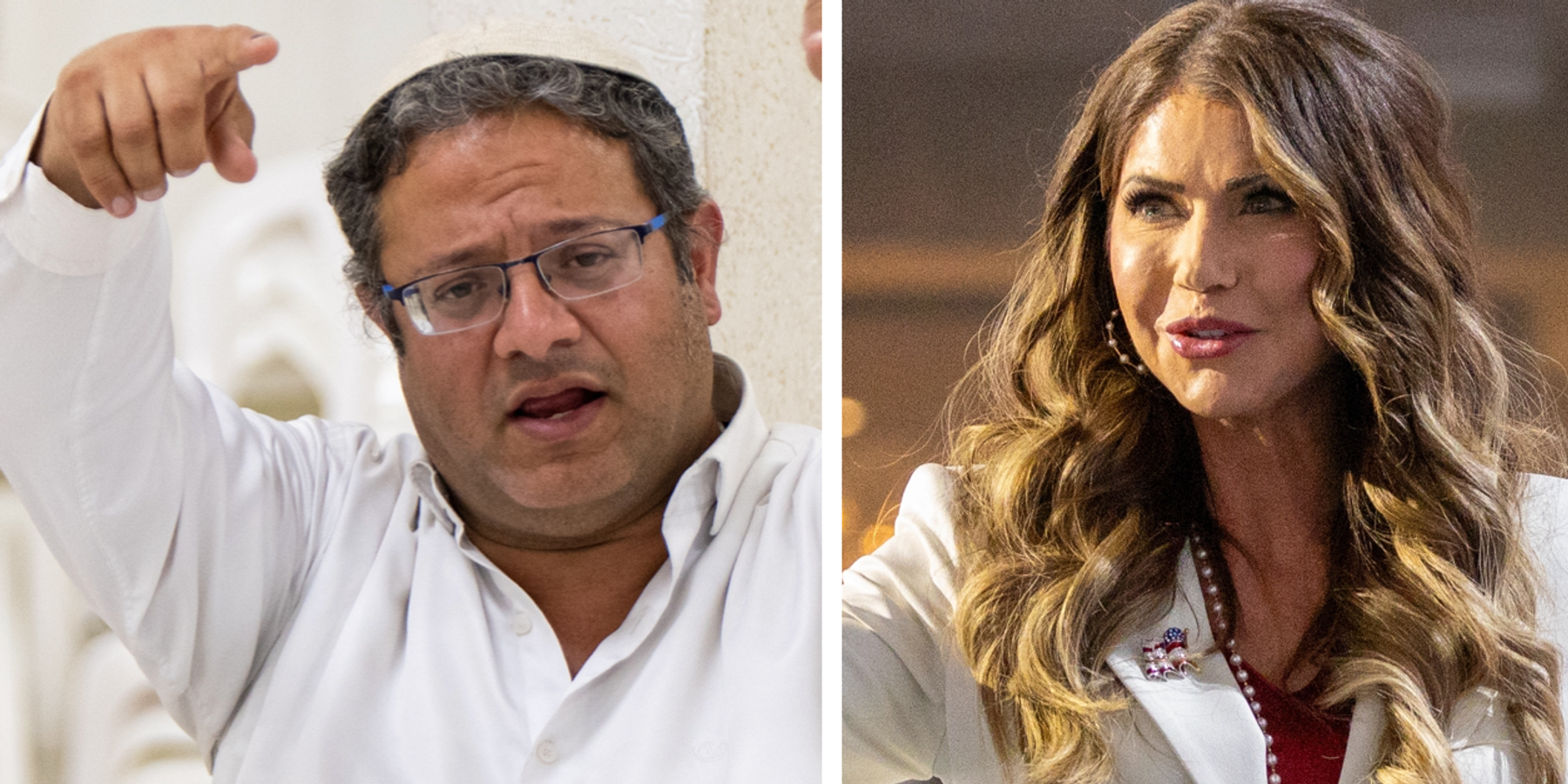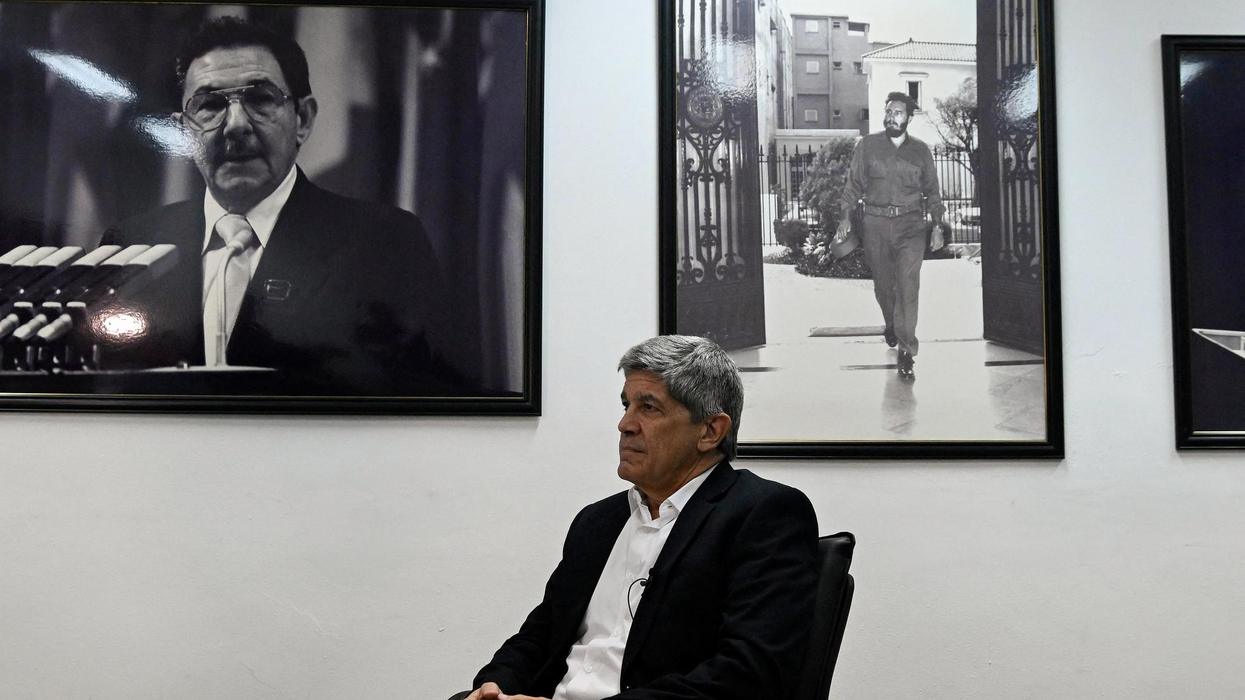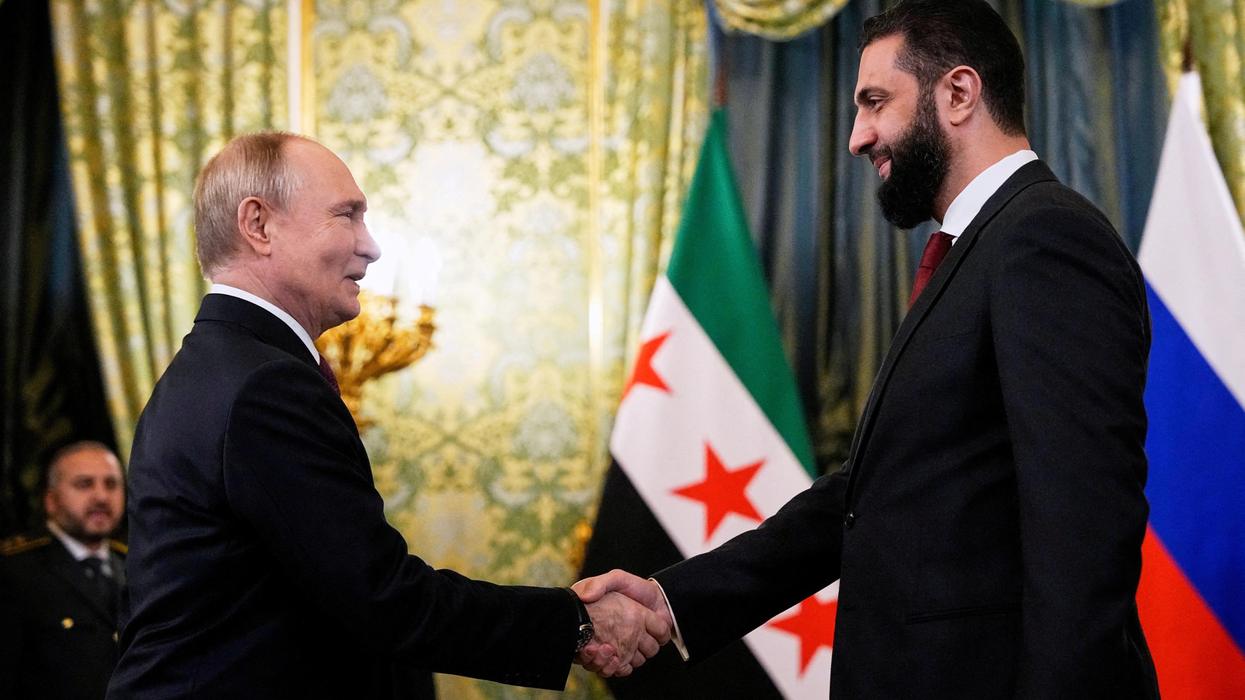Few American politicians can claim to back Israel more emphatically than Rep. Ritchie Torres (D-N.Y.).
Since the Oct. 7 attacks, Torres has dedicated himself to defending Israel and striking out against those who criticize its war in Gaza, earning him the moniker of “Israel’s loudest House supporter.” These efforts have garnered high praise from Israeli leadership. “Congressman Torres reflects our extraordinary ties and true friendship,” Israel’s defense minister said last year after meeting with the lawmaker.
So it may seem odd that, when Torres heard Israel’s national security minister was visiting Washington this week, he went on the attack. “There is no universe in which I would ever grant an audience to an extremist like [Itamar] Ben Gvir,” Torres tweeted, adding that he has “nothing but contempt” for the Israeli minister.
As Torres’ comments suggest, Ben Gvir is no ordinary Israeli official. The far-right minister has become a symbol of his country’s most aggressive political currents — a reputation that he earned through decades of activism in support of Jewish Israelis accused of attacks on Palestinian civilians. This, combined with his calls for annexation of Palestinian land and his backing of violent settler groups in the West Bank, led the Biden administration to boycott Ben Gvir and even consider slapping sanctions on him despite his prominent role in Prime Minister Benjamin Netanyahu’s cabinet.
Luckily for Ben Gvir, there’s a new leader in Washington. President Donald Trump, far from boycotting the Israeli minister, is reportedly ready to roll out the red carpet for him. On April 21, Ben Gvir will fly to the United States for his first ever official visit abroad, according to reports in Israeli media. The trip will include stops in Florida and Washington, DC, where he’s slated to meet with U.S. officials, conservative influencers, and Jewish community leaders.
The most high-profile meeting on his schedule is with Secretary of Homeland Security Kristi Noem.
As of this writing, there is no indication as to what Noem and Ben Gvir might discuss, but there’s reason to believe the pair will hit it off. Noem portrays herself as the ultimate tough-on-crime politician. She recently posed for a controversial photo op at a notorious prison in El Salvador where the administration sent more than 230 migrants accused, without due process, of membership in a Venezuelan gang.
Ben Gvir, who runs Israel’s prison system, has advocated a more straightforward solution for dealing with unwanted detainees. “It is unfortunate that I have had to deal in recent days with whether Palestinian prisoners should receive fruit baskets,” he said last year. “They should be killed with a shot to the head.”'I don't do it for the money'
Ben Gvir got his start in politics in the early 1990s, cutting his teeth as a teenage activist for Israel’s Kach party. At the time, the group was under threat from all angles. Israeli courts had banned it from participating in elections, and an Egyptian-American attacker had just gunned down its charismatic leader, Israeli-American Rabbi Meir Kahane.
Under Kahane, the Kach party focused largely on ensuring Jewish supremacy in Israel. The group advocated criminal penalties for intermarriage between Jews and non-Jews and called for the denaturalization of all Palestinian citizens of Israel. Among Kahane’s most controversial stances was that any Arab caught throwing stones at Israeli soldiers should be treated as a terrorist, meaning, in Kahane’s view, that the person should be killed and that their entire home village should be expelled from the country.
Back in the U.S., Kahane’s Jewish Defense League pledged to protect Jews using “whatever means necessary” and carried out a series of attacks against alleged antisemites, which eventually led the FBI to designate it as a right-wing terrorist group.
The Kach party limped along until 1994, when a Kahanist named Baruch Goldstein donned his Israeli military uniform, stormed into the Ibrahimi Mosque in Hebron and opened fire on the congregation, killing 29 worshippers and injuring another 125. Kach praised Goldstein as a “hero,” leading Israeli authorities to permanently ban the group.
But this didn’t dull Ben Gvir’s enthusiasm. In a 1995 interview, the young activist brandished a hood ornament that he claimed to have taken from Israeli Prime Minister Yitzhak Rabin’s car. “We got to his car, and we’ll get to him, too,” Ben Gvir said. A few weeks later, a far-right Israeli activist shot and killed Rabin, derailing the Oslo peace process. (Ben Gvir has no known connection to that attack.)
Ben Gvir spent the rest of the 1990s and the 2000s advocating for the expansion of Israeli settlements in the West Bank. After a few too many run-ins with the law, including multiple convictions for incitement and support for terrorism, Ben Gvir took his activism from the streets to the courts. He became a lawyer in 2012 and devoted himself to defending Jewish Israelis accused of killing Palestinians. “I don’t do it for the money,” he told Haaretz in 2016. “I truly believe I need to help these people.”
Decades after his first foray into politics, Ben Gvir remains a committed Kahanist. In 2021, he described Kahane as a “holy man, a righteous man,” who was “murdered for the sanctification of God’s name.” Ben Gvir also holds a special place in his heart for the Hebron shooter — so much so that he kept a photo of Goldstein on his living room wall until 2020.
The 'only solution'
As Ben Gvir made waves with his legal activism, he also began working his way into mainstream Israeli politics. In the early 2010s, he joined a neo-Kahanist party called Jewish Power and became an aide to one its leaders, Knesset member Michael Ben Ari. (Around that same time, the State Department banned Ben Ari from entering the United States, citing his support for Kahanism.)
The Jewish Power party remained on the fringes throughout the 2010s. In 2019, when Israeli authorities banned Ben Ari from running in Knesset elections, Ben Gvir took control of the party. Three years later, he launched it into mainstream relevance with a mix of luck and political savvy.
Israeli law says parties need only win 3.25% of the national vote to earn representation in the Knesset, which gives small parties a chance to break into the legislature. In 2021, Ben Gvir took advantage of this fact and ran on a joint list with other small far-right groups, earning him a seat in the Knesset for the first time.
The lawmaker used his new pulpit to advocate for expanded Israeli settlement on Palestinian land, including the Sheikh Jarrah neighborhood of East Jerusalem, where he brandished a gun while arguing with Palestinian residents. But his real victory came in 2022, when Netanyahu, desperate to stay in power and out of jail, formed a coalition government with the Jewish Power party, and named Ben Gvir the minister of national security. The deal gave Ben Gvir extraordinary power despite his relatively small base of supporters.
Ben Gvir has relished this high-profile role, which puts him in charge of Israel’s prisons and police force. In the wake of the Oct. 7 massacres, he’s put more guns in the hands of West Bank settlers, ordered police to allow attacks on aid convoys bound for Gaza, and reduced the amount of food available to Palestinian prisoners.
Ben Gvir was often critical of the Biden administration, which he accused of supporting Hamas when it briefly paused arms transfers to Israel. (It probably didn’t help that President Biden had recently slapped sanctions on one of Ben Gvir’s closest allies in the settler movement.) But he’s seen a lot to like in President Trump’s second term. When Trump suggested removing all Palestinians from Gaza and turning the enclave into the “Riviera of the Middle East,” Ben Gvir praised the idea and said that “encouraging” Gazans to leave is the “only solution” for the war.
“Everyone knows that I was right about encouraging migration,” he said. “Today, the president of the most powerful country in the world says that.”
Editor's Note: this article has been updated to reflect the correct date of Ben Gvir's travels to the U.S.
















